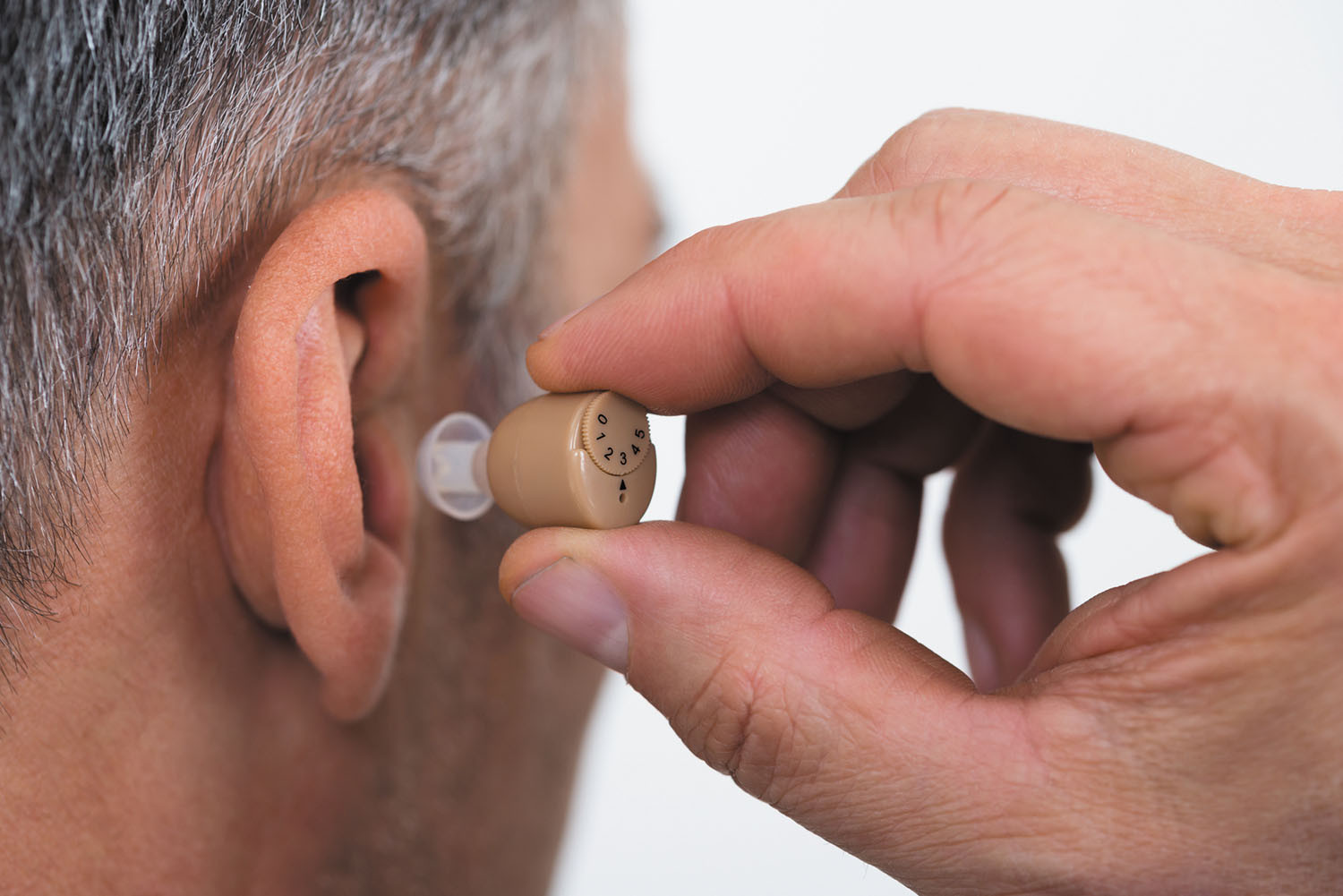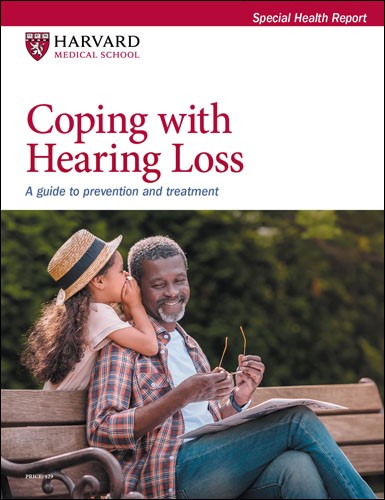Do you pass the hearing test?
Many older men have some degree of age-related hearing loss, but don't know it.
- Reviewed by Howard E. LeWine, MD, Chief Medical Editor, Harvard Health Publishing; Editorial Advisory Board Member, Harvard Health Publishing

Approximately one in three people ages 65 to 74 has hearing loss. Nearly half of those older than 75 have difficulty hearing.
While many people can function with some degree of hearing loss, especially if they have a spouse or family member who can repeat any information they may miss, ignoring hearing decline can profoundly affect one's health.
Growing evidence shows that age-related hearing loss is associated with a higher risk of cognitive decline. Research suggests that hearing loss impairs new nerve cell creation in the hippocampus, the brain's memory region. Hearing loss also is linked with increased risks for depression, social isolation, and being less active.
"It is often challenging to differentiate the cause of one's hearing loss and its severity without an evaluation," says Dr. James Naples, assistant professor of otolaryngology–head and neck surgery at Harvard-affiliated Beth Israel Deaconess Medical Center. "This is why older men need to get their hearing checked by a certified audiologist before any potential hearing loss worsens."
Hearing about problems
There is no single cause of age-related hearing loss, also known as presbycusis. The most common reason is changes in the inner ear, which can alter nerve pathways from the ear to the brain.
Over time, the cells in the inner ear grow old, die, and are not replaced. When these cells — called hair cells — die, the electrical messages of sound waves don't travel to the brain as well as they should. This causes many people to eventually experience some degree of presbycusis, although the severity varies. Another contributor to hearing loss is long-term noise exposure, like from power tools, loud music, gunfire, or careers in loud environments, such as construction and manufacturing.
Getting tested
Hearing tests measure how loud a sound needs to be before you clearly hear it. People with normal hearing can identify sounds of less than 25 decibels (dB). Mild hearing loss means you require sounds to be in the 26 to 40 dB range, and moderate hearing loss, your minimum hearing in the 41 to 55 dB range. Ranges higher than this are considered moderately severe to severe and profound.
According to the CDC, a person with mild hearing loss may hear most speech sounds, but soft sounds don't get through. Someone with moderate hearing loss may hear almost no speech at normal levels.
Age-related hearing loss and noise-induced hearing loss tend to affect both ears equally. If hearing loss occurs in one ear but not the other, or is accompanied by ear pain, vertigo, or ringing in the ear, it could signal any of a variety of conditions that require further medical evaluation.
You may be fitted for a hearing aid based on your hearing test results. An audiologist configures hearing aids to a person's specific hearing loss, similar to the way prescription glasses are fitted. Despite their name, hearing aids don't directly improve hearing, but instead work as amplifiers. Still, hearing aids can be literal life-changers. Research has shown that people with age-related hearing loss who wear hearing aids improve their working memory, concentration, processing speed, and attention.
Other studies have found that wearing hearing aids can lower the risk of being diagnosed with dementia and protect against fall-related injuries. "On a personal level, hearing aids can also improve your relationships with your partner, friends, and family," says Dr. Naples.
Less expensive options
The main downside to hearing aids has always been cost. The average price of one hearing aid is about $2,000 (although this can vary), and most people need one for each ear. Hearing aids are not usually covered by Medicare, although some Medicare Advantage plans and other commercial health insurance plans do cover them.
Why are hearing aids traditionally so expensive? Only a handful of companies produce most of the country's hearing aids, which are sold through audiology practices. This lack of competition drives up prices and keep them high.
However, in October 2022 the FDA approved the over-the-counter sale of hearing aids suitable for mild to moderate hearing loss. This new category means more competition among manufacturers that, in turn, should lower average prices. Some estimates suggest that a pair of over-the-counter hearing aids could drop to less than $1,000 (although the exact savings is unknown).
It's still being determined which styles will be available over the counter, according to Dr. Naples. He speculates they will range from traditional behind-the-ear devices to ones that fit into the ear canal.
Be mindful that there are some limitations to the over-the-counter devices. For instance, they are only for mild to moderate hearing loss (people with severe hearing loss would likely need a prescription hearing aid). Also, whereas a prescription hearing aid can be individually fine-tuned and fitted, over-the-counter aids come in generic sizes that can't be altered. It also still needs to be clarified how repairs, warranties, and replacements will work.
Also, don't confuse over-the-counter hearing aids with personal sound amplification products (PSAPs) sold at most drugstores. "PSAPs are not specifically intended for people with hearing loss," says Dr. Naples. They are a great alternative for people who only experience some hearing difficulties in specific situations, like listening to the TV."
Image: © AndreyPopov/Getty Images
About the Author

Matthew Solan, Executive Editor, Harvard Men's Health Watch
About the Reviewer

Howard E. LeWine, MD, Chief Medical Editor, Harvard Health Publishing; Editorial Advisory Board Member, Harvard Health Publishing
Disclaimer:
As a service to our readers, Harvard Health Publishing provides access to our library of archived content. Please note the date of last review or update on all articles.
No content on this site, regardless of date, should ever be used as a substitute for direct medical advice from your doctor or other qualified clinician.
















